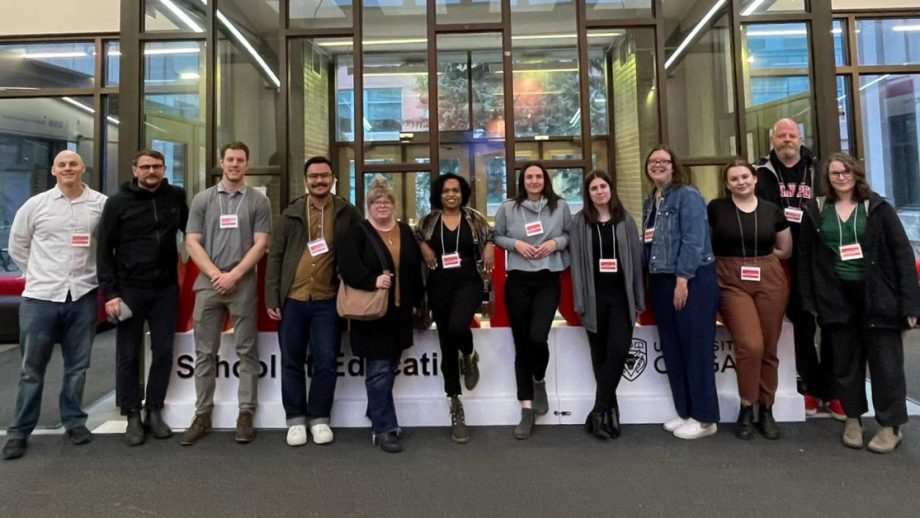
Students by Cory Aronec
Doing business differently – conference teaches youth about the co-op movement
A youth engagement conference to be hosted at The University of Winnipeg on October 22 will showcase cooperatives as viable businesses that are community-focused, balancing people, planet and profit.
The conference is a collaboration between UWinnipeg’s Business Chair of Cooperative Enterprises and Populus, a new youth-driven cooperative.
The conference is free to participants and is aimed at youth aged 18 to 30 that are interested in social entrepreneurship, are volunteer enthusiasts or connectors, and anyone intent on making a difference in their community!
Throughout the afternoon youth will hear from entrepreneurs who are running co-ops. Stephen Penner is part of a group of seven to ten students at UWinnipeg who are currently incorporating their new marketing co-op (working title: Create Op). He is in his final year of a Master’s in Development Practice degree.
“I have a fascination with co-ops as a development model because they are democratic and value-based, formed to meet the needs of the local community and the members,” said Penner. ”This is really about doing business in a way that gives back and empowers people.”
Other co-ops that will be featured include Populus and Velo Cite, a bike coop located right next to UWinnipeg! More participants will be announced closer to the date.
YOUTH CO OP CONFERENCE – Free
SATURDAY, OCTOBER 22, 2016
10:00 TO 3:00 PM (lunch included)
Bulman Centre Multi-Purpose Room (MPR)
UWinnipeg campus, 515 Portage Avenue
Participants must pre-register here.
CONFERENCE CONTACT: takeactionwinnipeg@gmail.com
BACKGROUND
UWinnipeg’s Business Chair in Co-operative Enterprises is unique in Manitoba, established in 2013 with grants from the Province of Manitoba’s Ministry of Housing and Community Development, Red River Cooperative Limited, Federated Co-operatives Limited, Co-operators Canada, Arctic Cooperatives Limited, Credit Union Central of Manitoba and Assiniboine Credit Union. It is located in, and affiliated with UWinnipeg’s Business and Administration Department.
The co-op movement was born during upheaval of the Industrial Revolution in 1844 England with the idea that ordinary people could pool their resources to their mutual benefit. That led to a global co-operative movement, with the first member-owned credit union appearing in Manitoba in St. Malo in the 1930s. Today, there are more than 400 Manitoba co-ops serving 800,000 members in all facets of life from grocery stores to financial services to gas bars.
Dr. Simon Berge, UWinnipeg’s Business Chair in Co-operative Enterprises, completed his Doctorate at the University of Guelph studying co-operatives as an alternative distribution system for local food and community development. Dr. Berge also holds a Masters of Business Administration from McMaster University majoring in finance. Prior to focusing on co-operative business practices Dr. Berge studied Biology at the University of Prince Edward Island and Medical Laboratory Technology at Mohawk College in Hamilton, Ontario.
Benjamin Prunty, keynote speaker, youth, and founding member of Populus, has co-founded multiple organisations, from nonprofits and cooperatives, to informal movement building collectives. His political experiences range from: grassroots organising and network development in the 2012 Quebec student strike; to serving as vice-president and president of the Concordia Student Union (CSU), and coordinator for the Association for the Voice of Education in Quebec (AVEQ); with 2 terms on the board of governors and senate of Concordia University, and; now coordinating mobilisation efforts on an increasingly national scale. From building grassroots political power, to democratising institutional and city-based food-systems, to reducing the cost of housing for students, Benjamin works with a networked approach building economic democracy and democratic economies from the bottom up.




